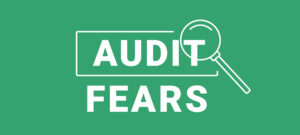Starting a small business can be difficult, and it’s easy to become overwhelmed. Keep in mind that you might be an amateur at bookkeeping and accounting, but preplanning and preparing is a pro move that everyone is capable of. So is taking advantage of Sinn Accounting’s no-charge initial meeting. “How do I prepare for this meeting?” you might ask. Start by knowing what you don’t know and create a list of questions. Don’t be embarrassed to ask anything; almost every great endeavor began with a question. Here are some great suggestions:
How should my business be structured?
When building a startup, deciding what form of entity the business is should be a priority early on, as the type of business structure determines legal and tax structures. The most common forms of business are the sole proprietorship, partnership, corporation, S corporation, and Limited Liability Company (LLC). There are specific criteria for each structure, and your accountant can help you identify the best option for you and your business.
What records should I keep?
A business should, at minimum, keep track of cash register receipts (if applicable), cash and credit deposit information, form(s) 1099-MISC., invoices, and receipt books. Your accountant may suggest maintaining other records depending on your type of business or specific financial situation. For more information on records and bookkeeping, see our blog entry: “BEST BOOKKEEPING PRACTICES FOR BETTER BUSINESS.”
Do I have employees or contractors?
Independent contractors provide goods or services according to the terms of a contract they have negotiated with an employer. A worker is an employee when the business has the right to direct and control the work performed by the worker, even if that right is not exercised. Having employees means it’s your responsibility to pay Social Security, Medicare taxes, and unemployment taxes on wages earned by said employees. Discuss your labor needs with your accountant and determine if one option is better than another for your situation.
What financing options are available to me?
Small businesses and startups can have access to a variety of financing options. Your accountant can recommend a small business loan from a traditional bank or a non-traditional option. Alternative financing methods outside of a conventional bank include angel investors, venture capital, grants, and many other options.
What are my tax obligations?
There are five types of business taxes, and the specifics of your business will determine which you need to pay and how to pay them. These taxes are income tax, estimated tax, self-employment tax, employment tax, and excise tax. Remember that utilizing an accountant means experience and guidance when filing taxes for your business.
What business expenses can I deduct?
This can vary depending on your circumstances, but most businesses can deduct car mileage/expenses, office rent and utilities, business phone calls, continuing education courses, and parking for business-related trips. Again, your accountant can be more prescriptive when you discuss the specifics of your business.
How can I best manage my cash flow?
Cash flow is the net amount of cash or cash equivalents coming in and out of a business. When your accountant has a complete view of your business, they can recommend a variety of cost-cutting measures. These measures can include the leasing of equipment over buying and cashing in on assets. Your accountant can also suggest tips such as acquiring a line of credit before you need it and utilizing mobile payment apps to get paid faster.
How can you help me with business growth?
An accountant can bring a variety of skills and tactics to your business that can contribute to overall growth. A few of these skills/tactics include creating and maintaining cashflow projections, helping select a business entity, aiding in loan application, debt management, and budget creation.
Although basic information was given with each question above, a professional at Sinn Accounting can provide a much more detailed explanation of these topics. More importantly, once one of our accountants understands the specific nuances of your business, the information they provide will be much more streamlined and prescriptive to your situation. Plus, as your knowledge grows, so will your confidence and your business. Schedule your complimentary initial meeting with Sinn Accounting today.
Photo by Christin Hume on Unsplash



